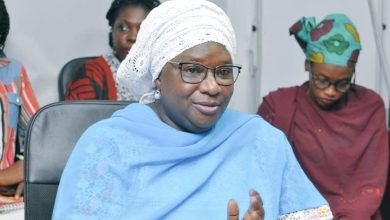
Nigeria’s crude oil production dipped for the second consecutive month in March, raising fresh concerns about the country’s ability to meet its revenue targets for the year as global oil prices continue to tumble.
Latest figures from the Nigerian Upstream Petroleum Regulatory Commission (NUPRC) show that the country produced an average of 1.40 million barrels per day (mbpd) of crude in March 2025, down from 1.465 mbpd in February. The March figure marks a reversal from the brief momentum gained in January when production inched above 1.5 mbpd, aligning with Nigeria’s Organisation of the Petroleum Exporting Countries (OPEC) quota.
Hopes had been high at the start of the year, following a December 2024 output of 1.4 mbpd that jumped to just over 1.5 mbpd in January, suggesting a positive trajectory toward the federal government’s ambitious 2 mbpd target for 2025. But the declining trend since February has cast doubt on whether that target is still within reach.
In broader terms, combined crude and condensate output also fell, slipping from 1.78 mbpd in January to 1.67 mbpd in February, and again to 1.603 mbpd in March. The NUPRC stated that in March, Nigeria’s daily output fluctuated between a low of 1.49 million barrels and a peak of 1.76 million barrels, with condensate contributing 202,993 barrels per day to the total.
“Average crude oil production for the month stood at 1,400,783 barrels per day, which represents 93 percent of Nigeria’s OPEC quota of 1.5 mbpd,” the commission disclosed.
Nigeria has struggled to meet its assigned production quotas from OPEC for three consecutive years 2022, 2023, and 2024 due to recurring issues such as oil theft, pipeline vandalism, and underinvestment in the upstream sector. Despite early optimism in 2025, these same factors appear to be stalling progress once again.
Yet, the federal government remains publicly optimistic. Minister of State for Petroleum Resources (Oil), Heineken Lokpobiri, has continued to project bold figures, recently reaffirming the government’s target to reach 3 mbpd this year, combining both crude and condensate.
Quoting the phrase once popularized by former U.S. President Donald Trump, Lokpobiri said Nigeria was set to adopt a “Drill, baby, drill” approach to scale up production. He assured that this would be achieved without breaching Nigeria’s OPEC commitments. However, observers are skeptical, pointing to the ongoing drop in daily output as evidence of deeper structural challenges.
At the same time, Nigeria’s oil revenue outlook is being squeezed on another front: global crude prices. As of Sunday, benchmark crude prices had plunged well below projections set in the government’s 2025 budget. Brent crude sold for $64.76 per barrel, while WTI hovered at $61.50—both over $10 shy of the $75 per barrel price benchmark used in the national fiscal plan.
The price crash is being compounded by weakening demand for Nigerian crude grades in international markets. According to a report by Argus Media, Nigerian crude is facing stiff competition from cheaper alternatives such as U.S. WTI, Caspian CPC Blend, and several Mediterranean grades, particularly in Europe. The report noted that “as many as 15 April-loading Nigerian cargoes” were still unsold as the market shifted into the May trading cycle.
Industry analysts warn that these dual pressures—sliding production and falling prices—could severely undermine Nigeria’s 2025 revenue projections. With oil still the backbone of government earnings, any prolonged downturn could have widespread fiscal implications.
As the country battles both internal production setbacks and external market shocks, questions remain about the realism of Nigeria’s oil ambitions in the year ahead.





